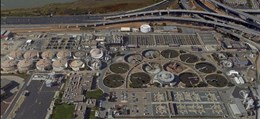Thứ hai, 02/02/2026 | 16:49 GMT+7




















 Luật sửa đổi, bổ sung một số điều của Luật Sử dụng năng lượng tiết kiệm và hiệu quả chính thức có hiệu lực từ 01/01/2026
Luật sửa đổi, bổ sung một số điều của Luật Sử dụng năng lượng tiết kiệm và hiệu quả chính thức có hiệu lực từ 01/01/2026
 [PODCAST: Góc chuyên gia] Vật liệu xây dựng xanh - Chìa khóa tiết kiệm năng lượng và giảm phát thải cho công trình tại Việt Nam
[PODCAST: Góc chuyên gia] Vật liệu xây dựng xanh - Chìa khóa tiết kiệm năng lượng và giảm phát thải cho công trình tại Việt Nam
 Báo cáo phân tích Hệ số đàn hồi điện/GDP của Việt Nam năm 2025 và dự báo trong tương lai tới
Báo cáo phân tích Hệ số đàn hồi điện/GDP của Việt Nam năm 2025 và dự báo trong tương lai tới
 [PODCAST TKNL] Hà Nội phấn đấu giảm 10% tiêu hao nhiên liệu trong các ngành phát thải lớn
[PODCAST TKNL] Hà Nội phấn đấu giảm 10% tiêu hao nhiên liệu trong các ngành phát thải lớn
 Chính phủ ban hành Nghị định quy định chi tiết Luật Sử dụng năng lượng tiết kiệm và hiệu quả
Chính phủ ban hành Nghị định quy định chi tiết Luật Sử dụng năng lượng tiết kiệm và hiệu quả
 Khóa đào tạo Người Quản lý năng lượng tháng 1/2026
Khóa đào tạo Người Quản lý năng lượng tháng 1/2026
 Năng lực kiểm toán năng lượng: Bài toán con người, thiết bị và yêu cầu chuẩn hóa thị trường
Năng lực kiểm toán năng lượng: Bài toán con người, thiết bị và yêu cầu chuẩn hóa thị trường